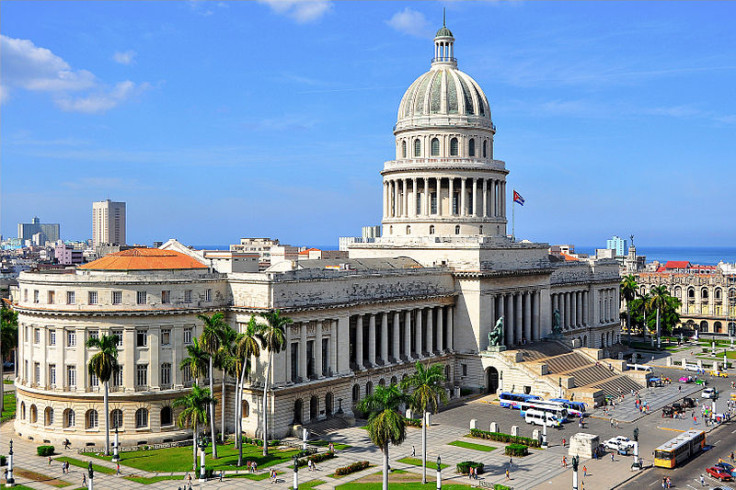
Ukrainian intelligence officials revealed that more than 1,000 Cubans have signed contracts with the Russian military to fight in Ukraine, with at least 39 confirmed dead. The disclosure was made during a briefing organized in Washington by Cuban American Republican lawmakers, highlighting growing concerns about Havana's alleged complicity in Moscow's war efforts.
Thousands Could Be Involved
According to Andriy Yusov, spokesperson for Ukraine's Defense Intelligence Directorate, Cuba has become "the leading country of origin for mercenaries" in Russia's war, reported El Nuevo Herald. Speaking through a translator, Yusov said reliable intelligence indicates as many as 20,000 Cubans may already have been recruited to fight against Ukraine.
"We have been able to physically identify more than 1,000 of those mercenaries," Yusov explained, accusing the Cuban government of allowing the recruitment to take place despite public denials from Havana.
The comments came nearly two years after Ukrainian hackers exposed documents linking a Russian military officer to efforts to enlist 200 Cubans. At the time, Cuban authorities announced the arrest of 17 people in a human trafficking network but have since remained silent.
Florida Lawmakers Sound Alarm
The revelations were shared during a video call with lawmakers in South Florida, including U.S. Representatives Mario Díaz-Balart, María Elvira Salazar, and Carlos Giménez. Human rights activist Rosa María Payá also participated, echoing warnings that such a large-scale operation would not be possible without Cuban state approval.
"This is a tragedy for the Cuban people," Payá said, stressing that Havana's silence amounts to tacit support for Moscow's war machine.
1000+ Cubans have signed contracts to fight for #Russia in #Ukraine, 39 have been confirmed dead, a spokesman for Ukraine’s military intelligence. The official said the # of Cubans hired by the Russian military could be as high as 20,000.https://t.co/pMsxAwErC5
— Nora Gámez Torres (@ngameztorres) September 22, 2025
Maryan Zablotskyy, a Ukrainian parliamentarian, added that one Russian officer responsible for recruitment was stationed in Cuba. He presented screenshots of contracts and passports, including the case of Dianne Gladys García Benavides, a 25-year-old from Santiago de Cuba, identified as the first Cuban woman confirmed to have joined the Russian army.
Evidence of Cuban Casualties
Officials also released a list of 39 Cuban mercenaries killed in action and shared the case of Yusbel González Turcás, 52, now detained in Kyiv. His passport showed multiple entries into Moscow, raising suspicions of direct links to Cuban authorities.
Letters from Cuban fighters complaining about expired contracts and missing payments were also presented, along with evidence from a Russian court case involving recruiter Elena Smirnova, accused of stealing wages from 300–400 Cuban mercenaries.
Economic Desperation Driving Recruitment
For many Cubans, the decision to enlist is driven by economic hardship. The Russian army offers $2,000 per month, a staggering sum compared to Cuba's average monthly state salary of just $15. Yusov noted that most recruits are around 35 years old — an age when many would otherwise be raising families.
"Instead, young Cubans are dying for Vladimir Putin's imperial ambitions," Yusov said.
Cuba's economic crisis has worsened in recent years, with blackouts, shortages of food and medicine, and deteriorating infrastructure pushing many to seek opportunities abroad, even in war zones.
Calls for Sanctions
Oleksandr Merezhko, chair of Ukraine's parliamentary foreign affairs committee, called for international accountability. "Governments that support Russia should be considered complicit in war crimes," he said.
Advisors to President Volodymyr Zelensky suggested Washington consider secondary sanctions or tariffs against countries like Cuba and North Korea that continue to assist Moscow. Florida lawmakers pledged to pressure both the U.S. and European Union to intensify measures against Havana.
"The Cuban regime is not a bystander," Díaz-Balart said. "It is allowing recruitment on its soil and enabling Russia's war."
As the war in Ukraine enters its fourth year, the revelation that thousands of Cubans may be fighting under the Russian flag underscores both Moscow's reach and Havana's vulnerability. For Cuban families, it also means a growing toll of missing and dead loved ones in a conflict fought far from home.
© 2025 Latin Times. All rights reserved. Do not reproduce without permission.






